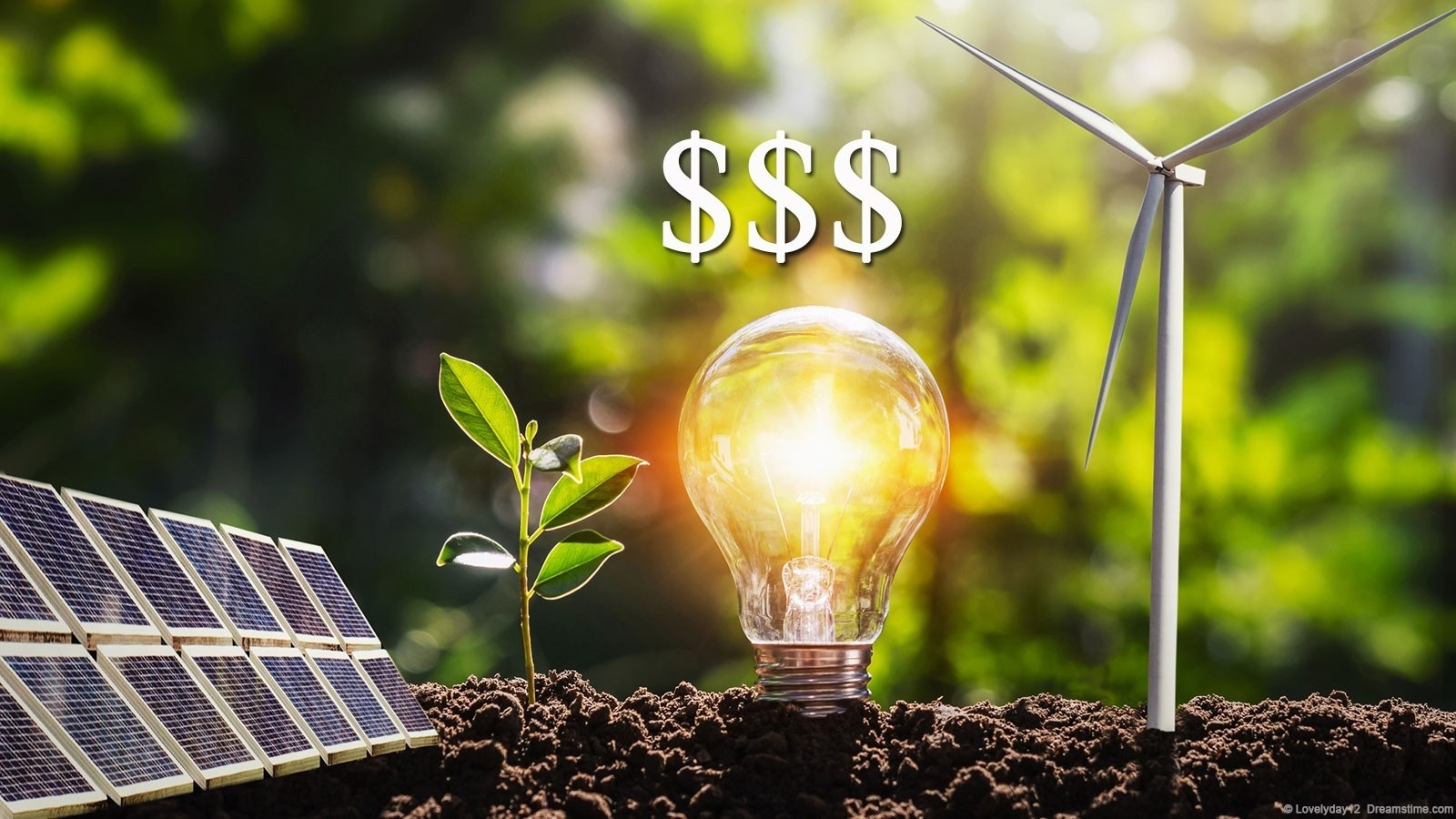
TOPICS:
Europe’s Obsessions with Ecology and Equality
Aug 10, 2025 / Written by: Gary Isbell
...Are Driving Its Economy to the Brink
Europe’s unwavering commitment to equality and the green agenda is leading to its economic decline. If current trends persist, projections suggest that by 2035, the European Union’s per capita income will be half that of the United States.
The U.S. is poised to surpass $100,000 in per capita income, while much of Europe could remain stagnant at roughly $50,000. The cause is not any lack of resources but the combined weight of green initiatives and socialist equality. Green regulations are strangling productivity. Bloated social welfare programs are redistributing wealth. These agendas have produced inefficiencies and stifled innovation and economic growth.
Germany: An Example of Green Energy Failure
Germany’s energy policies serve as a warning about how bad policy clashes with reality. Over the past 15 years, the country has invested heavily in renewable sources like solar and wind, while shutting down its clean nuclear plants. Germany now has the highest electricity rates in Europe, and its industries are in freefall.
German electricity is now four and a half times as expensive as in the United States. For many manufacturers, including global giants like VW and Mercedes-Benz, this cost is unsustainable.
Entire industries are relocating, causing a domino effect of collapsed small and medium-sized businesses. All of this has happened because the promised green future did not materialize. Ironically, Germany still relies heavily on coal to fill the large energy gaps.
The Renewable Energy Reality
Renewables now account for a significant 55–60 percent of Germany’s electricity production. While this sounds like progress, all is not as it appears. Solar and wind energy are inherently unreliable. Germany experiences something called the “Dunkelflaute,” which translates to “a dark, flat, calm time.”
During these periods of low wind and sunlight, renewable energy cannot meet demand. For example, on December 12, 2024, German wind and solar combined provided only 3.3 percent of the country’s energy needs. When these shortfalls happen, good old-fashioned coal saves the day.
Unfortunately, Germany phased out its nuclear energy plants. They could have provided a stable, reliable and low-carbon source of power during the “Dunkelflaute.”
Irony has a way of laughing at the imprudent. Despite Herculean efforts to appease green fanatics, Germany still has the highest carbon footprint in Europe in total emissions and per capita.
This is because it uses coal and lignite, some of the dirtiest energy sources available, to fill the gap whenever wind and solar fail. Thus, this so-called clean energy revolution isn’t just costly; it’s also counterproductive because it fails to produce clean, reliable and abundant energy.
The Cost of Germany’s Transition
These policy choices have turned Germany into an example of what not to do in the energy sector. The nation’s energy system is fragile and unsustainable. It produces the following dismal effects:
- Skyrocketing Costs: German businesses face electricity prices significantly higher than those of many of their competitors. For industries dependent on energy-intensive processes, like manufacturing, this isn’t just an inconvenience. It’s a death sentence.
Germany's industrial electricity prices were around 38/eurocents per kilowatt-hour in 2025.
U.S. industrial electricity prices were much lower, costing companies about 8.2/eurocents per kilowatt-hour in 2025.
China's industrial electricity prices were around 8/eurocents per kilowatt-hour in 2025. (Actively managed by the Chinese Communist Party to keep prices low for industrial competitiveness). - Deindustrialization: Global giants like BASF and Volkswagen are scaling down operations or relocating. Meanwhile, smaller companies in their supply chains are collapsing or moving.1
- Energy Autonomy Lost: Germany’s policies undermine its energy independence. An overreliance on unreliable sources leaves the country vulnerable to external pressures, including geopolitical tensions.
Germany’s experience highlights a core truth about energy policy: Good intentions aren’t enough. Lofty ideas must be paired with a clear understanding of practicality and cost-effectiveness.
Socialist Equality Kills Economies
Europe’s second obsession is its quest to impose equality upon its population. An obsession with equality always operates as a smokescreen for socialism. Under the guise of equal redistribution of wealth, socialism robs Peter (who works) to give to Paul (who won’t).
The comparison between the U.S. and the EU could not be more dramatic. Between 2010 and 2023, the U.S. GDP per capita income increased to $82,769, nearly double that of Europe’s $45,130.
America surged ahead thanks to a 2.2 percent annual GDP growth rate, significant productivity gains, lower operational costs and increased spending on research and development.2
Europe, in stark contrast, limped forward with 1.3 percent growth, sluggish productivity improvement and a shrinking workforce that has been losing nearly one million working-age persons each year.
The top twenty-one European Union countries impose a “marginal tax” on high incomes (a graduated tax rate) ranging from 51.14 percent to a whopping 73.22 percent on their top earners. This is equivalent to paying for the privilege to work!3
Under socialist regimes, significant investment capital and venture funds cannot materialize in economies where wealth is heavily regulated and taxed at every turn. Companies like NVIDIA, Microsoft, IBM and Tesla can pour billions into ambitious projects because there’s a system allowing for capital to accumulate freely, buoyed by investors confident in potential returns. However, Europe, with its current trajectory, discourages an environment conducive to such capital generation.
A Dire Warning for Europe’s Future
Europe’s obsession with equality has come at a high cost, limiting economic potential in pursuit of utopian socialist goals. If Europe continues on its current trajectory, its decline will no longer be a possibility; it will become its defining legacy.
As Europe declines economically, it also faces a real risk of losing its influence in key technologies that will shape future economies. Even more concerning, progress in artificial intelligence, quantum computing and biotechnology—which are dual-use technologies with major defense implications—is falling out of its reach.
History shows that economies and societies can adapt quickly if obsessions like these are discarded. Thus, Europe must abandon its romantic attachment to redistributive policies and the green agenda. It needs to respect the inequality in God’s creation and replace its socialist leadership with individuals who possess the vision and resolve to address these urgent challenges.
Footnotes:



